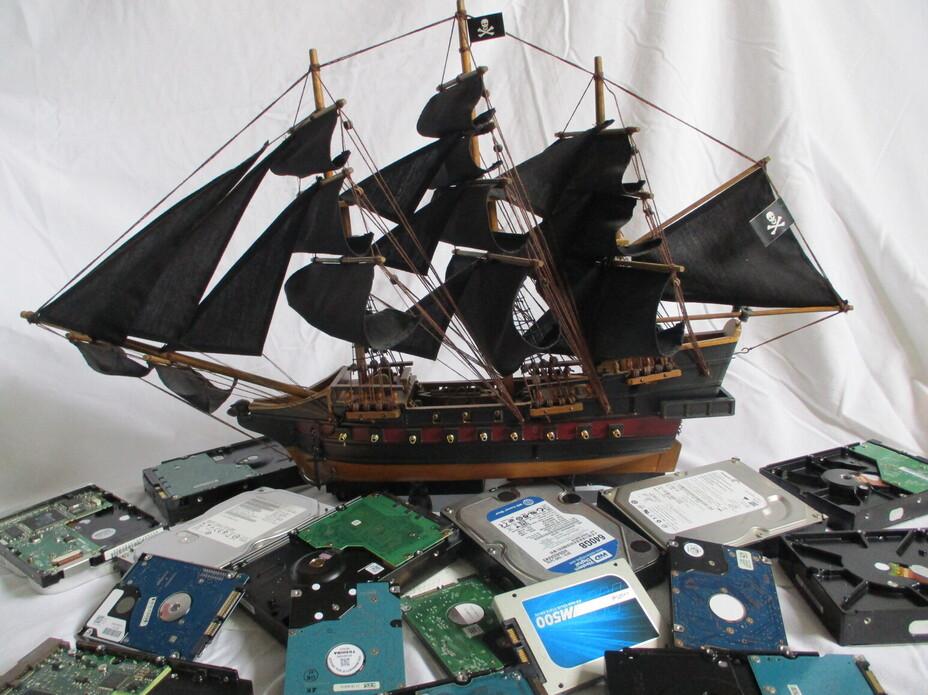In Favor of Plunder
Apr. 22, 2025 [Technology] [Advertising] [Gaming] [Monetary]There are times when it becomes necessary to unfurl the sails and set to sea in search of spoils. Nowhere is it more poignant than when a piece of media has been made unavailable to your platform. And those rocking Linux often run into such aggrivation. Even more so when the underlying hardware is anything other than x86[_64] or ARM.
Say you’ve resolved to experience a game. The weaker willed might reach for the WINE bottle, or the more adventerous look to engine reimplementations or full decomp ports. But the game assets still need to be acquired from an original copy. Do you pay the original publisher who had given the world a huge middle finger by releasing a proprietary platform-locked game? *hearty swashbuckling laughter No, we weigh anchor and ready the cannons!

Media relinquishes any expectation to not be pirated when;
A) It is encumbered with DRM (Digital Restrictions Management)
B) It is made arbitrarily unavailable, such as by geographic region locking
C) It uses the content as a vehicle to advertise or proseletyse (ffs, never pay for propaganda)
D) It practices CaaH (Content as a Hostage)
By paying for such content, one financially incentivises these bad behaviors. A vote for wrongdoing. The fact that piracy is an option gives average folks a stronger footing to say “Your product must respect me in X, Y and Z basic ways. Only then will I consider making a purchase.” In this way, it can be a form of protest.
Content piracy even benefits normies (yes, the same ones who will hastily jump down your throat for daring to acquire a copy of that one movie where stranded starfighter pilots share a surprise pregnancy). It acts as a sort of check and balance wherein if publishers push too hard they run up against customer attrition, bleeding the segment of their customer base who are aware that there is even a choice. The prospects of going the extra mile to find bootleg media becomes more palatable as the costs associated with officially accessing the same media endlessly ratchets upward. So really, normies should be thanking their dastardly pirate neighbors with whom they share the net.
Content piracy benefits preservation efforts, with many works having been saved thanks to cracking, dumping and filesharing efforts. I’ve recently been impressed with the momentum of videogame decompilations and their subsequent PC ports. Emulation is itself respectible, but can often feel a bit like conducting a long distance relationship. Running a title natively on your hardware skips the often inefficient emulation process. And having the source code usually means that it can be built and run just about anywhere.
The definition of piracy appears to be expanding. One recent development I was surprised to see is that folks are now equating the usage of ad blockers to content piracy. I’d never considered these to be under the same umbrella, but I suppose I can see their relation. In that case, call me Captain Theftbeard because the web without an ad blocker is simply unusable for any sane person.
You see, digital piracy isn’t just about accessing media when you’re broke, or about preserving works, or even about convenience. It also plays a key role in keeping the “own nothing and be happy” incumbents from running amok.
They hate piracy because it equalizes the power dynamic between publishers and audiences.